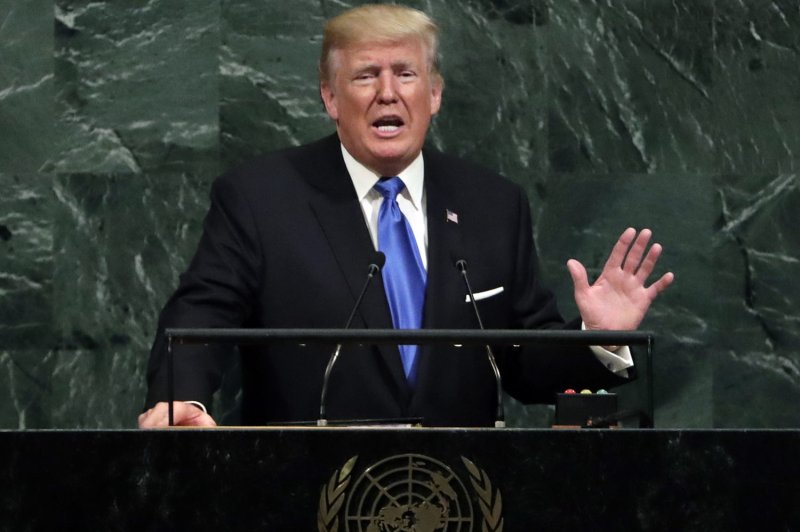Last week, President Trump tweeted that Kim Jong Un's regime "won't be around for long." North Korea interpreted the message as a declaration of war, but the White House said no such declaration has been made. Photo by Jason Szenes/UPI |
License Photo
Sept. 25 (UPI) -- The White House has denied North Korea's statement that President Donald Trump's most recent comments on the country constitute a "declaration of war."
"We have not declared war on North Korea, and frankly the suggestion of that is absurd," White House press secretary Sarah Sanders said during Monday afternoon's press briefing.
Last week, Trump tweeted that Kim Jong Un's regime "won't be around much longer."
On Monday, North Korean Foreign Minister Ri Yong Ho told reporters in New York that the president's comments were a declaration of war, giving North Korea a right to self defense.
"It is clearly a declaration of war because those were words by an incumbent American president," Ri said. "As long as the U.S. has declared war, from now on, even if U.S. strategic bombers don't fly into our airspace, we will hold all the rights to self-defense, including the right to shoot them down at a time of our discretion."
Last week, the U.S. military announced that its warplanes approached the coast of North Korea, taking a route across the demilitarization zone, the dividing line between north and south.
Earlier this month, North Korea conducted its sixth nuclear test. Ri said Pyongyang is considering conducting an atmospheric hydrogen bomb test -- a more complex and difficult feat than the most recent underground tests.
The Pentagon has promised to prepare a number of potential responses, including military strikes, for the president to consider should North Korea follow through on such a threat.
Some experts have suggested the war of words is making armed conflict more likely.
"This is something I feared," Jae H. Ku, the director of the U.S. Korea Institute at the Johns Hopkins School of Advanced International Studies in Washington, told The New York Times. "When we go down this road, our escalation could lead to accidental shootouts, and it may not be so accidental."
But Sanders insisted war is not the White House's aim.
"Our goal is still the same," she said. "We continue to seek the peaceful denuclearization of the Korean Peninsula. That's our focus, doing that through both the most maximum economic and diplomatic pressures as possible at this point."















